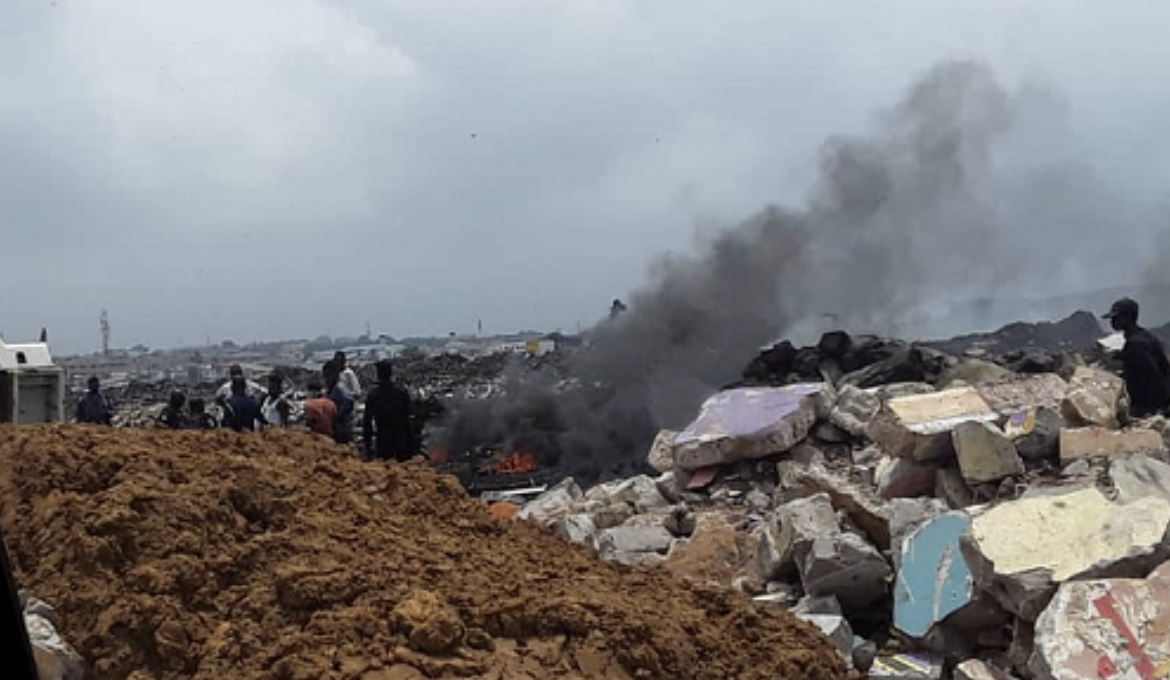The Environmental Protection Agency (EPA) in collaboration with the Accra Regional Police Command last Friday arrested eight scrap dealers for allegedly engaging in open burning of electronic waste (e-waste) at Agbobloshie in Accra.
The arrest forms part of the agency’s resolve to end open burning in the country. This also follows the passing of the Hazardous and Electronic Waste Control and Management Act (Act 917) by Parliament in 2016 and the launching of the Integrated E-Waste Management Programme for Ghana in 2018.
Chief Superintendent of Police, Mr Samuel Kwesi Ofori, whose outfit conducted the operation together with EPA, said engaging in open burning was an offense as enshrined in the Hazardous and Electronic Waste Control and Management Act (Act 917).
He said the suspects were arrested while they were engaging in the act at the Agbobloshie market, pointing out that police had taken their statement and that they would be investigated and processed for court.
Mr Ofori said the operation would be sustained and expanded to other parts of the country to protect the country’s environment from pollution and harmful substances emanating from the open burning of e-waste materials.
Speaking with the media, the Acting Executive Director of the EPA, Mr John A. Pwamang, said before the operation was carried out, the agency had engaged the leadership of all scrap dealers in the country on the need to stop the practice.
He said all scrap dealers had been sensitized about how to go about their business without having to burn the e-waste openly, but the recalcitrant ones were still engaging in the act.
He said studies conducted by the EPA had revealed that the open burning of e-waste, which contained metals including lead and mercury could cause many diseases, including cancers.
Mr Pwamang said the practice did not only pose a health risk to the scrap dealers themselves, but those living around Agbobloshie and its environs.
He said the operation would be carried across the country in order to prevent open burning, noting that statistics showed that an estimated 40 to 50 million tonnes of e-waste was generated annually, with Ghana serving as the final destination for e-wastes from the Western world.
According to him, used electronic and electrical equipment imported into the country continued to be the major source of electronic waste, as many had not been tested for functionality, and in contravention of regional and international laws, such as the Bamako Convention, the Basel Convention, and European Union e-waste shipment regulations.
Mr Pwamang explained that to address the problem of the burning of electrical wires for copper recovery, Pure Earth, with local partners such as the Green Advocacy Ghana, KFS and the Greater Accra Scrap Association (GASDA) supported by GIZ opened an e-waste recycling facility at Agbogbloshie in 2014.
That, he said, it was worrying that though the facility housed wire-stripping granulator machines in blue shipping containers inside the scrapyard, some scrap dealers had refused to follow the best practices, and instead had been engaging in open burning of e-waste materials.









Discussion about this post